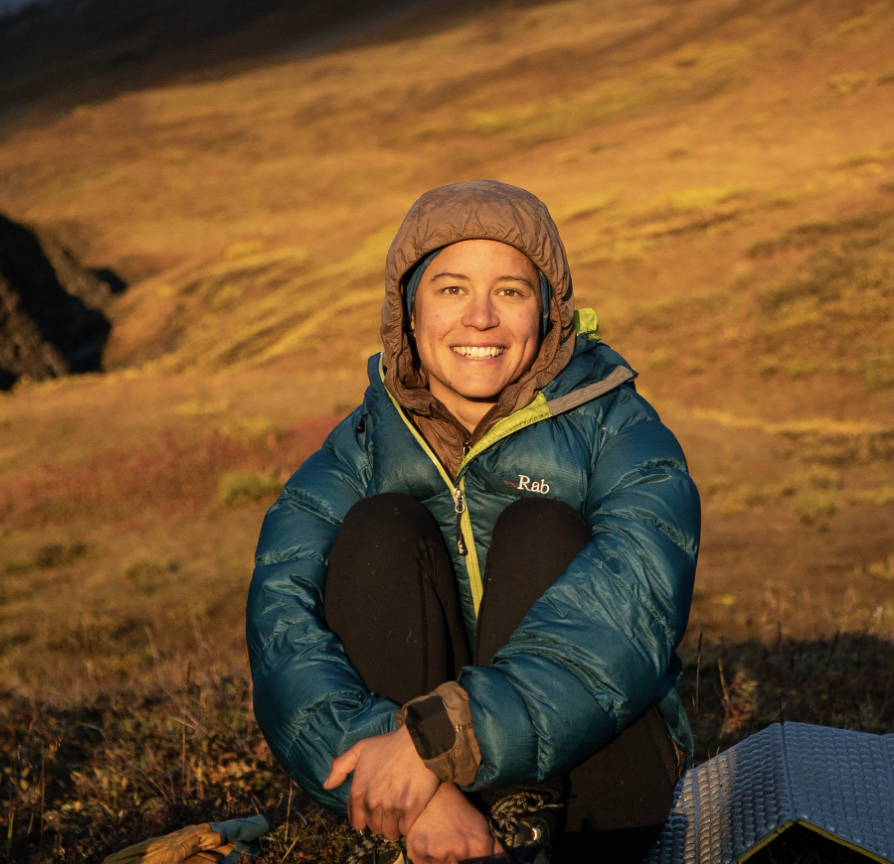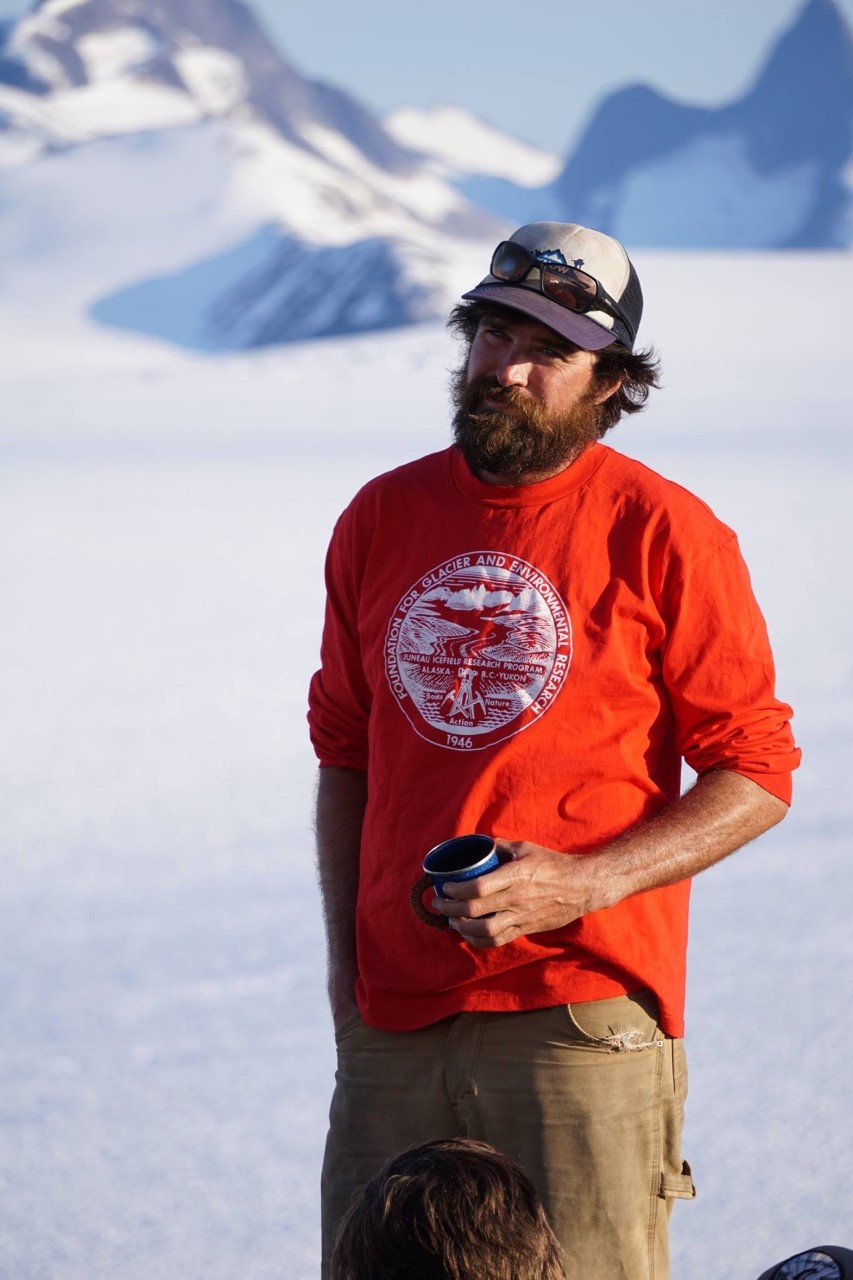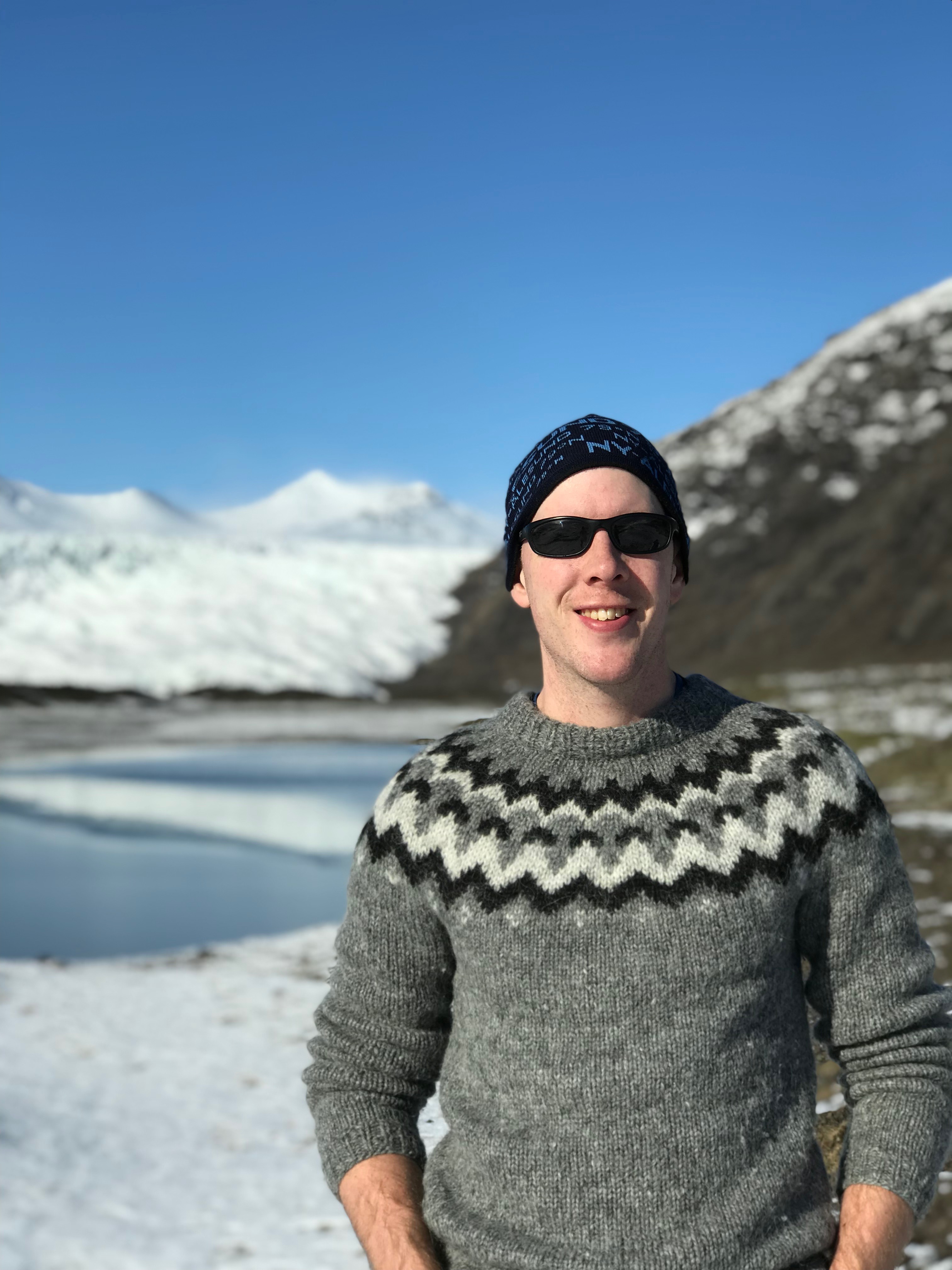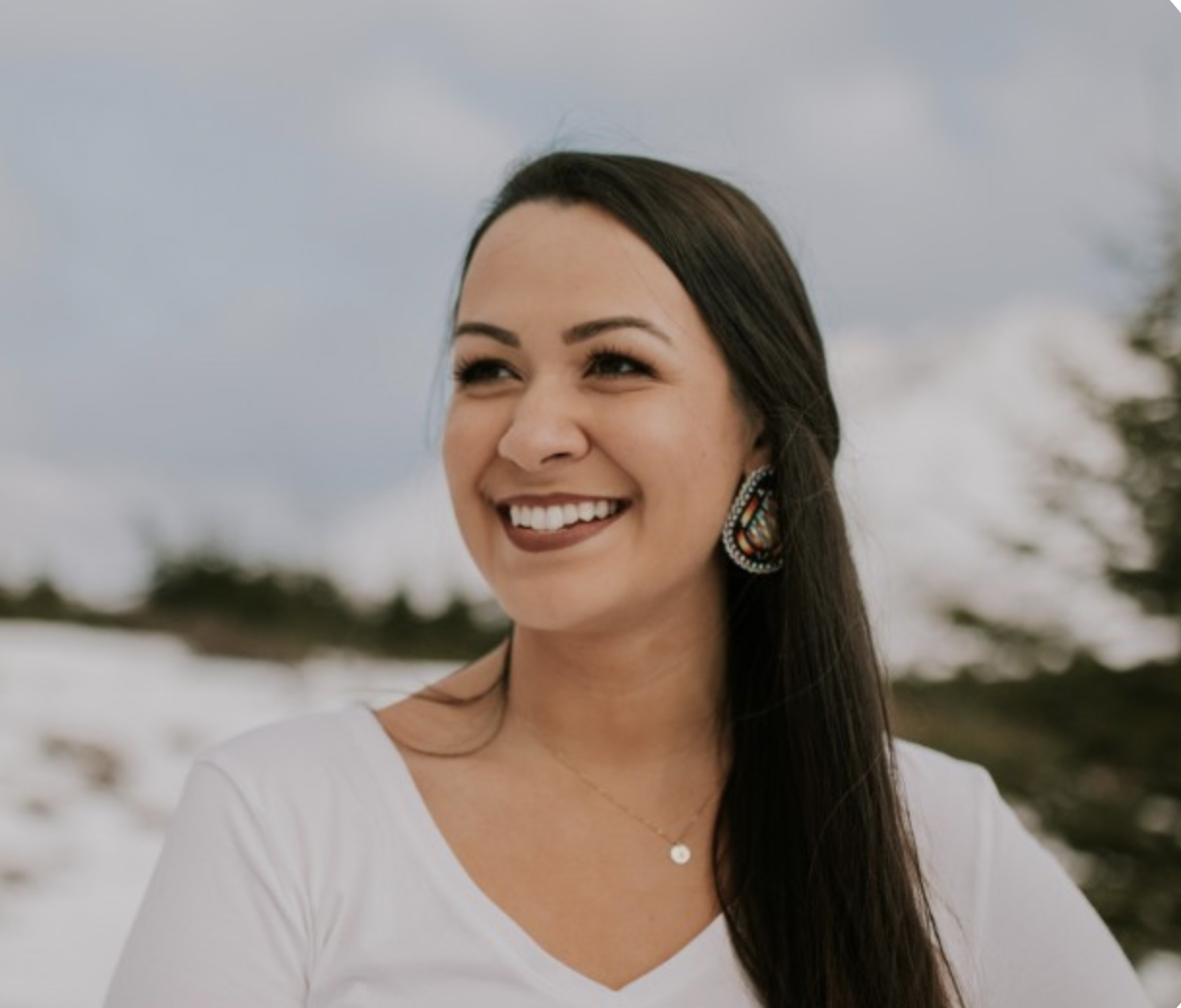Polar Careers Outside of Academia: A 2nd Panel Discussion for Early Career Researchers
-
Wanting to know more about non-tenure track faculty jobs and what opportunities exist for polar scientists beyond academia? The Polar Science Early Career Community Office (PSECCO) is hosting its second panel to discuss opportunities beyond academia for polar scientists. What you learn here will absolutely be transferrable to jobs outside of polar science too, so be sure to spread word of this event far and wide!
Want to ask questions of the panelists before the event or connect with other early career researchers (ECRs) after the event? You can do one or both using this Google Form. Register using the link on the left.
Panelists for this event include:
Kirsten Arnell

Kirsten Arnell (she/her) is an engineer at the EarthScope Primary Instrument Center (EPIC) in Socorro, New Mexico. She and her colleagues support geophysical experiments around the world by providing them with instrumentation and related expertise. She began at the EPIC (then IRIS PASSCAL) as a Polar Field Engineer in 2018, designing polar-hardened seismic systems and installing them in Antarctica and Greenland. She transitioned to a managerial role of the Polar Group in 2020. As of 2022, Kirsten is Lead Engineer working on engineering projects with all groups across the facility.
Born in Calgary, Kirsten was shaped by the Canadian Rockies from a young age. She has always been infatuated with earth sciences and getting her hands dirty, but never thought pursuing a career in academia was for her. She went to Columbia University in 2011 to study “something earth-related”. From there she got her first taste of glacial fieldwork in Alaska with the Juneau Icefield Research Program in 2014. After her burgeoning helicopter obsession drove her to simultaneously pursue a degree in mechanical engineering, she graduated with a B.A. in Earth Science and a B.Sc. in Mechanical Engineering in 2016. This combination landed her at the edge of academia, where she currently stands, supporting polar science through engineering.
Kirsten feels incredibly grateful to work with brilliant scientists across many fields—from glaciology and volcanology to hydrology and geophysics—and to learn about incredible science while spending more time working with instruments and less time writing science papers. Her hands have been a little more icy than dirty, but she is glad to have found her niche!
Chris McNeil

Chris McNeil is a geophysicist with the U.S. Geological Survey’s Benchmark Glacier Project, working out of the Alaska Science Center in Anchorage, Alaska. Since 2009, he has worked on mountain glaciers across North America, with a primary focus on homogenizing in situ data glacier mass balance records. Additionally, he has leveraged historic aerial photography and modern satellite imagery to investigate broader regional patterns of glacier change. Beyond glaciology, his research includes aspects of data science, remote sensing, climatology, meteorology, and oceanography. He received a B.S in geography from Salem State University in 2011 and a M.S in Environmental Science at Alaska Pacific University in 2016.
Originally from Essex, Massachusetts, he worked both as a midnight baker (like the “time to make the donuts guy”) and production manager and at a local bakery, and later as a commercial clam digger, while attending Salem State University as an undergraduate. Growing up he always had a fascination with natural systems, weather, and climate but never thought a career in Earth Science was a viable option. That all changed after his first field season with the Juneau Icefield Research Program in 2009, where he eventually met USGS scientists, leading to him starting work with the Benchmark Glacier Project in 2013.
Chris is extremely grateful to work on issues that have direct implications for local ecosystems and global sea level—both of which impact communities like his hometown Essex, MA.
Allen Pope

Allen Pope (he/him) is a Program Officer for Polar Cyberinfrastructure in the National Science Foundation’s Office of Polar Programs. Prior to NSF, Allen has many years of experience working as a polar scientist and as a service leader within the polar community. He most recently served as the Executive Secretary of the International Arctic Science Committee based in Akureyri, Iceland, and was formerly a Research Scientist at the National Snow and Ice Data Center (part of CIRES at the University of Colorado Boulder), the University of Washington’s Polar Science Center, and Dartmouth College. He received his Ph.D. at Cambridge University in Polar Studies, where he also completed an MPhil in Polar Studies. Previously, Allen completed a Bachelor of Arts at Harvard University in Chemistry and Earth & Planetary Sciences, with a citation in French.
Allen’s research background is in using satellite data to study snow and ice around the world – most recently tracking lakes on the surface of the Antarctic and Greenland Ice Sheets, studying ultra-cold surface temperatures in Antarctica, tracking ice shelf velocities and fractures, contributing to a glacier inventory of the Mongolian Altai, and researching & teaching on the undergraduate-focused Juneau Icefield Research Program. As a researcher, Allen also helped coordinate the NSF-funded Polar-Computing Research Coordination Network, participated in the Geoscience Paper of the Future project, and was a fellow of the Software Sustainability Institute in the UK. Allen also has extensive experience in community service and outreach. He has participated in the inaugural Scientific Community Engagement Fellows Program (formerly with AAAS, now with CSCCE) and has spent a month as the Sitka Science Center’s Researcher in Residence. He has also served in various volunteer leadership roles with the American Geophysical Union, International Glaciological Society, the Interagency Arctic Research Policy Committee, and the Association of Polar Early Career Scientists.
Anthony Powell

Anthony Powell is a multi-media filmmaker and photographer who specializes in all things Antarctica. He grew up on a farm in Taranaki, New Zealand. He worked there as a Telecommunications Tech, before picking up his first job in Antarctica as the Communications Tech for New Zealand's Scott Base in 1998. Following that he continued to work at both Scott Base, and McMurdo Station which is run by the United States National Science Foundation. He married his wife Christine in Antarctica in 2003. Christine is from Orange County California; she was working at the nearby McMurdo Station while he was still working at Scott Base. He has now spent 10 years physically in Antarctica including 10 winters, when the bases endure months of unending darkness.
Over the years he has had to design and build many of the camera systems himself in order to come up with equipment that can still function in the extreme cold of the Antarctic winter and has worn out or broken many cameras taking the millions of photos that make up time-lapse image sequences that feature as a major part of his work. For the last 10 years has been working as a full-time photographer, filmmaker, specialist equipment builder, and consultant. He has had his footage appear in numerous exhibits, TV shows, films, and magazines, including New York Natural History Museum, International Antarctic Centre, Discovery Channel, National Geographic, Disney, and was featured in BBC's Frozen Planet series. The Frozen Planet team collectively won an Emmy Award for photography. His debut feature film “Antarctica: A Year On Ice” won more than 20 international film awards. It can be streamed via Amazon Prime in most countries. He is currently working on making more videos, exhibit work, and building specialist camera equipment to help scientists with their ongoing research in Antarctica.
Karli Tyance-Hassell

I am Anishinaabekwe from Kiashke Zaaging Anishinaabek (Gull Bay First Nation) and grew up in Thunder Bay, Ontario, Canada. I currently reside on Dena’ina Ełnena (Anchorage, AK). I came to Alaska in 2017 as a master’s student with the Fisheries, Aquatic Science and Technology Laboratory at Alaska Pacific University. I recently started a new position with the Native Lands and Resources division with Tlingit and Haida Tribes of Alaska as a Senior Policy Coordinator.
As an Indigenous woman who studies science, I am a traveler between scientific and Indigenous ways of knowing and aim to utilize a Two-Eyed Seeing approach to community-centered land and water stewardship, caretaking, and collaboration. I have a broad background in environmental and fisheries science, and have interest in decolonizing education, science and policy, to be inclusive and relevant to Indigenous methodologies, culture, language and way of being. My interests include reconceptualization of environmental policy/management processes through Indigenous leadership and values by centering & honoring place-based knowledge and epistemologies. My own cultural values as an Anishinaabekwe continually invigorate my motivation for Land-based protection and sustainability for the next seven generations, and reinforce my passion in serving Indigenous communities throughout my career. I am a traditional women’s jingle dress dancer, hand drummer, and enjoy being out on the Land with my family and friends.
Links & resources shared during the panel discussion:
- JIRP: https://juneauicefield.org
- Association of Polar Early Career Scientists: https://www.apecs.is
- IASC: https://iasc.info
- Anthony’s website: https://www.antarcticimages.com
- EarthScope: https://www.earthscope.org
- Antarctica: A Year on the Ice (film trailer): https://www.nzfilm.co.nz/films/antarctica-year-ice
- Alaska Indigenous Research Program: https://www.anthc.org/alaska-indigenous-research-program/
- NNA-CO: https://www.nna-co.org
- Arctic Together Podcast: https://www.nna-co.org/arctic-together-podcast
- Tlingit and Haida landing page: https://www.ccthita.org
- PSECCO Newsletter & Slack Sign-up https://psecco.org/join-psecco-community